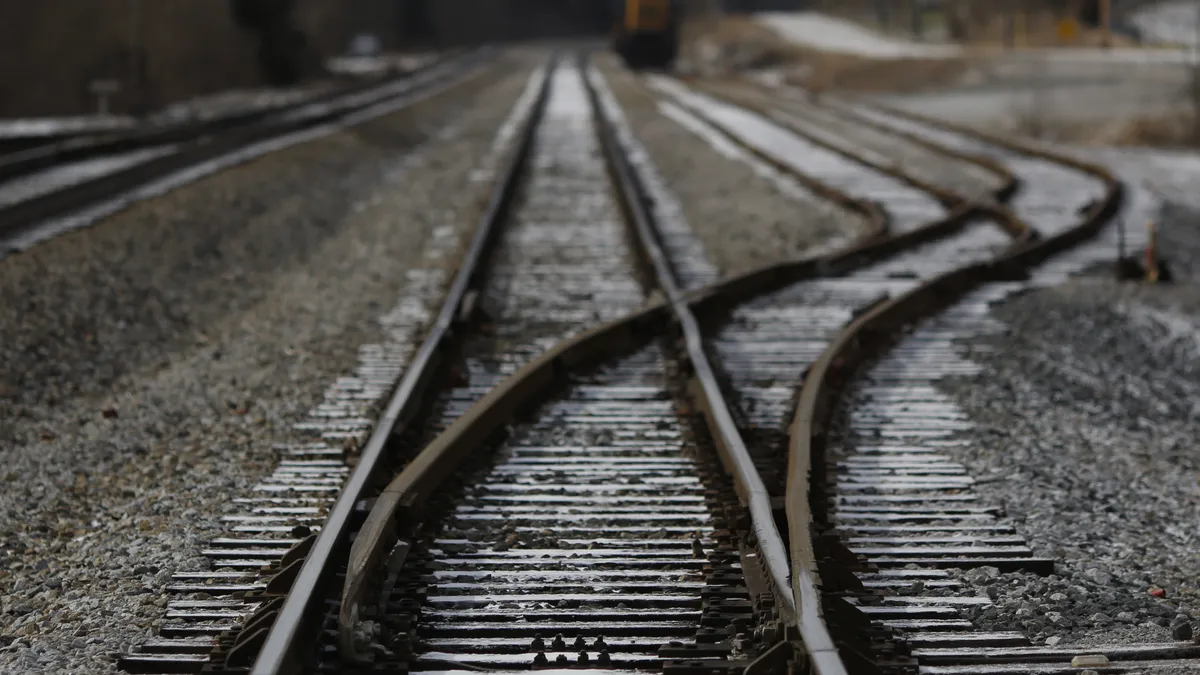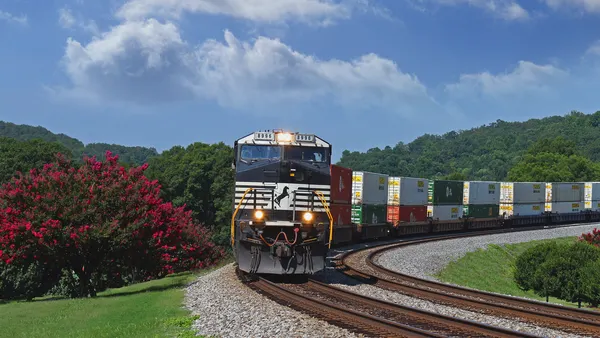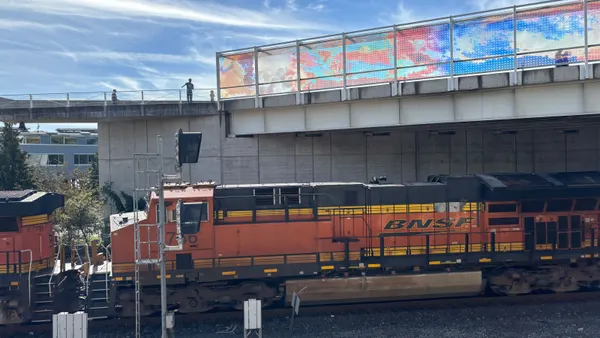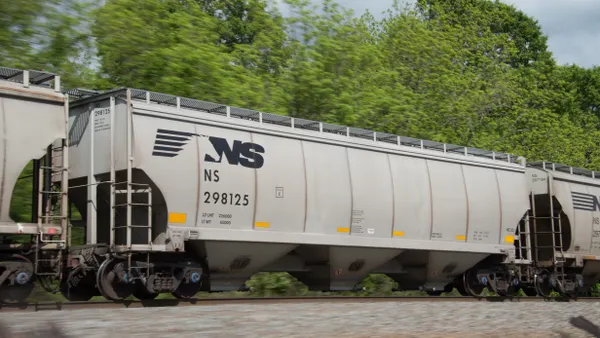Dive Brief:
- The Rail Customer Coalition sent a letter to the Surface Transportation Board on Friday pushing for reciprocal switching rules ahead of a pivotal hearing slated for next month.
- The hearing, set to take place March 15-16, will address a 2016 proposal that would require railroads to establish arrangements for certain customers to use competing rail carriers when no other competitive option exists.
- Over 80 industry groups representing shippers signed the letter as part of the coalition. Reciprocal switching would give shippers the ability "to choose a carrier that provides the best combination of rates and service," the letter said.
Dive Insight:
Rail shippers argue that a flurry of mergers and acquisitions following the deregulation of the rail industry in the 1980s has led to widespread consolidation, pushing up rates and impacting service.
The STB's proposal could change that: New rules would give more shippers access to reciprocal switching, a practice where shippers with limited rail options can pay to use another carrier at an interchange.
"It's hard to think about in the short term, something that would be more effective in promoting competition," said Jeffrey Sloan, senior director for regulatory affairs at the American Chemistry Council, during an American Antitrust Institute podcast.
It's a rule that's of particular interest to captive shippers, or those served by only one railroad with no access to other modes of transportation. During the podcast, Russell Pittman, director of economic research at the Department of Justice's antitrust division, said such shippers make up approximately a quarter of freight traffic in the U.S. (A 2011 study from the Congressional Research Service suggests the figure is closer to 10%.)
Proponents of the rule say reciprocal switching would give captive shippers access to competitive options — which, in turn, could have a moderating effect on prices. While shippers can currently obtain reciprocal switching by filing a dispute with the STB, many say the bar for proving their case is too high.
Railroads, meanwhile, argue the proposal would slow freight movements and compromise network efficiency. Association of American Railroads President Ian Jefferies said during a presentation at a Midwest Association of Rail Shippers conference last month that the proposal was a form of "backdoor rate regulation" that could drive down prices to below-market levels.
"The board should fix its rate review process and rate dispute process versus trying to have government intervention in railroad operations," he said. "Anybody who thinks that that's gonna result in a more fluid network — I would question that one."
The STB is taking a fresh look at reciprocal switching following a July executive order from President Joe Biden asking federal agencies to further policies aiming to increase competition. Experts believe there is a higher chance the agency could take action on reciprocal switching and other rail issues compared to years past.
"When you look at political situations like this, you say: 'Is it even something to consider? Are they even going to act on it?'" said Adam Nordstrom, principal of government relations firm Viking Navigation, said at the MARS meeting last month. "And I think for the first time in many years, the answer to that with this board is probably yes."
Clarification: This story was updated to include a federal estimate of the number of captive shippers in the U.S.














